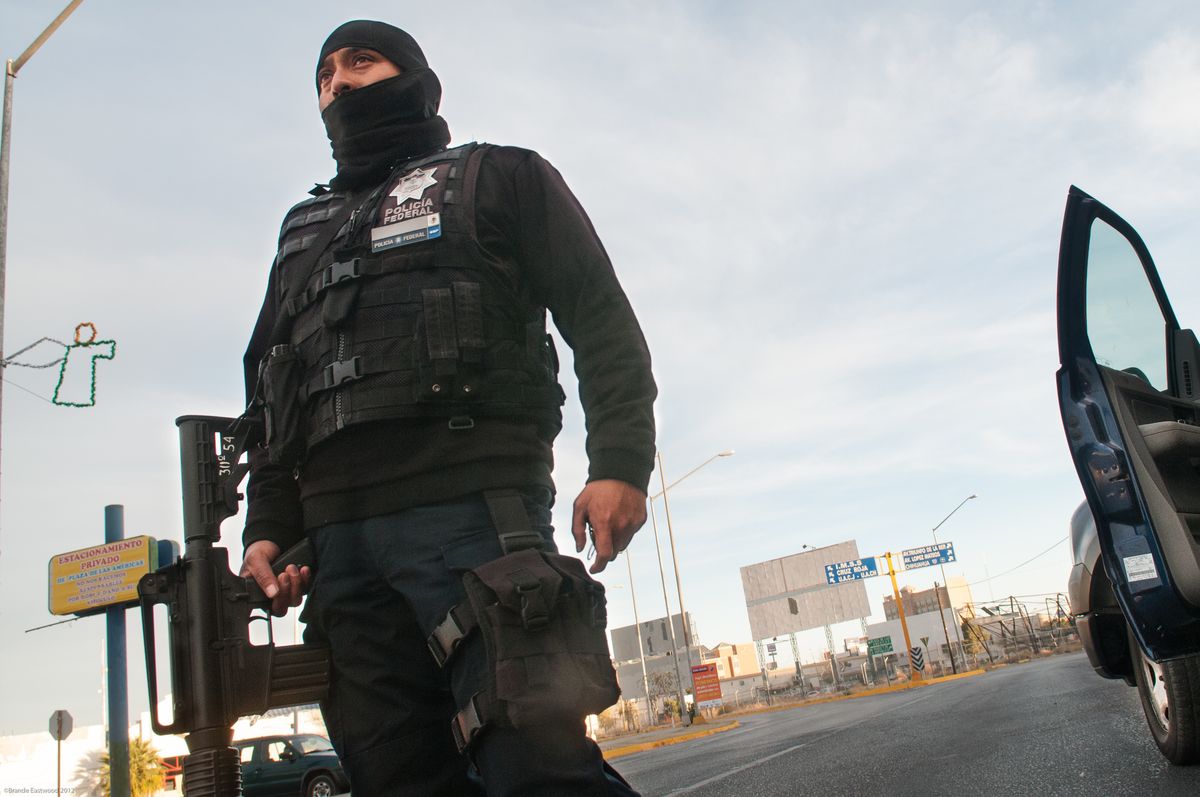Since 1980, when the first Mexican drug cartel was founded in Guadalajara by a former Mexican Judicial Federal Police Agent, Miguel Ángel Félix Gallardo (‘The Godfather’), countless innocent lives have been taken, violently, at the hands of greed and corruption. Special Agent ICE Jaime J. Zapata was just one of these victims — he was ambushed and killed by the Zetas drug cartel on a highway near San Luis Potosi, Mexico. Agent Zapata was 32 years old.

Four American Families Are Fighting Back Against Mexican Drug Cartels, and Taking Down This Well-Known British Establishment in the Process.
On Feb. 11, 2016, however, four years after Zapata’s death, his family joined three other American families in filing a lawsuit in Brownsville, Texas — Zapata’s hometown. The lawsuit aims to connect multinational British banking giant, HSBC, to the funding of several Mexican drug cartels, alleging that HSBC knew and disregarded “the fact that said funds would be used to support the Mexican cartels and their terrorist acts against Mexican and US citizens.”
The lawsuit contains highly detailed descriptions of several cartel murders, proving that Zapata’s murder was not an isolated act of violence. According to The Guardian, Lesley Redelfs was a US consulate employee in Juárez, Mexico. After leaving a children’s birthday party, she was shot twice in the head while driving away in her SUV. Redelfs was four months pregnant. Her husband Arthur, who worked as a detention officer in El Paso, was “gunned down as he tried to reach the border and their seven-month-old daughter was found screaming in the backseat.”
Money laundering is what makes tragedies like the above possible. And this is not the first time that HSBC has been targeted as a corrupt entity. Back in 2012, the bank was forced to pay a $1.9 billion fine to settle further money laundering accusations. The US Senate report stated that the bank knowingly moved hundreds of millions of dollars around the financial system for various drug cartels. Prosecutors claimed that the cartels were depositing their money so frequently at HSBC Mexican branches, the deposits were being made in special boxes, specifically designed to fit through teller windows.
The 2016 lawsuit alleges further that, “driven by its desire to expand its business and increase revenue, HSBC intentionally implemented criminally deficient anti-money laundering programs, processes and controls, which were designed to guarantee that billions of dollars would go through its banks undetected or unreported. And that is exactly what happened.”
Security and corruption prevention procedures were apparently either fabricated or non-existent at Mexican HSBC branches, making it simple for cartel members to come and go as they pleased.
Money laundering is an absolute necessity when it comes to the success of the cartels. If the cartels aren’t able to integrate their “dirty” money into the global financial system, they lose their edge — they aren’t able to corrupt the law enforcement officers and public officials who they depend on to keep them in the clear. If they can’t corrupt powerful officials, they won’t be able to “acquire personnel, weapons, ammunition, vehicles, planes, communication devices, raw materials for drug production, and all other instrumentalities essential to their operations.”
Basically, money laundering is the one step that, if taken away, could break terrorist organizations open. And yet, terrorist groups continue to be funded by our own corrupt banking entities. The same institutions that we, regular citizens, depend on every day are the same institutions that terrorists depend on every day. Arab Bank, which was successfully sued last year under the Anti-Terrorism Act for its involvement in the Hamas Attacks, is just one example.
Now this lawsuit against HSBC, brought on by American families who have violently lost the people they love, is a second example. As innocent lives — like those of Zapata, Lesley Redelfs and Arther Redelfs — continue to be taken while these groups remain in power, how many more corrupt institutions will reveal themselves?